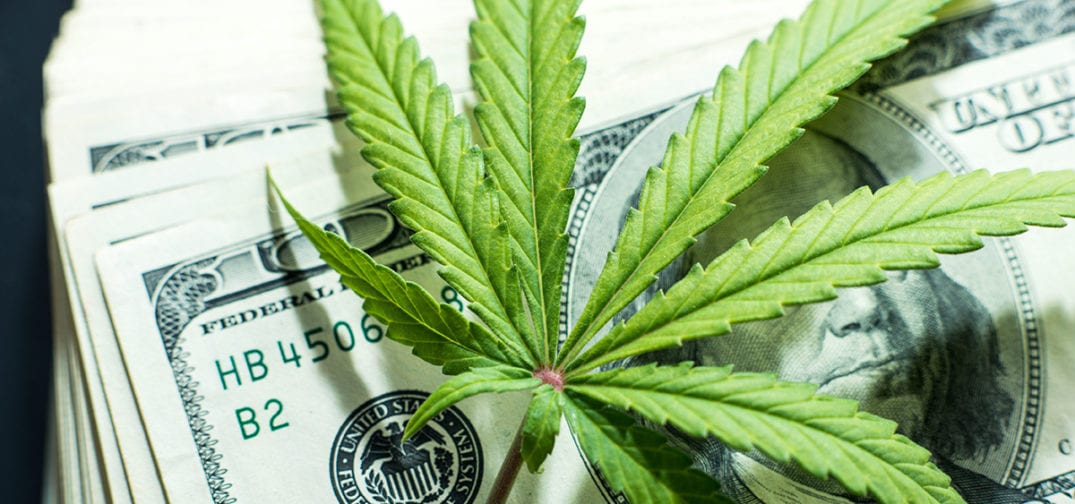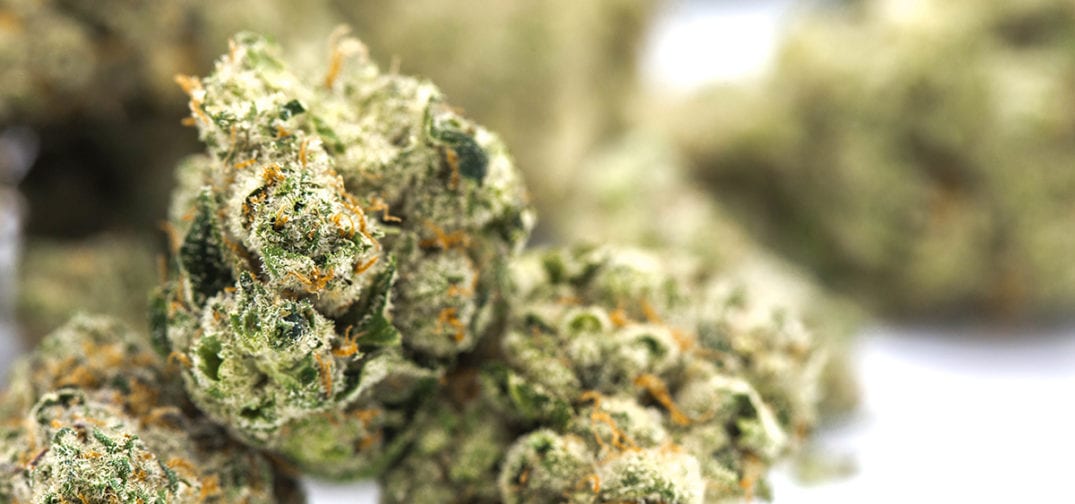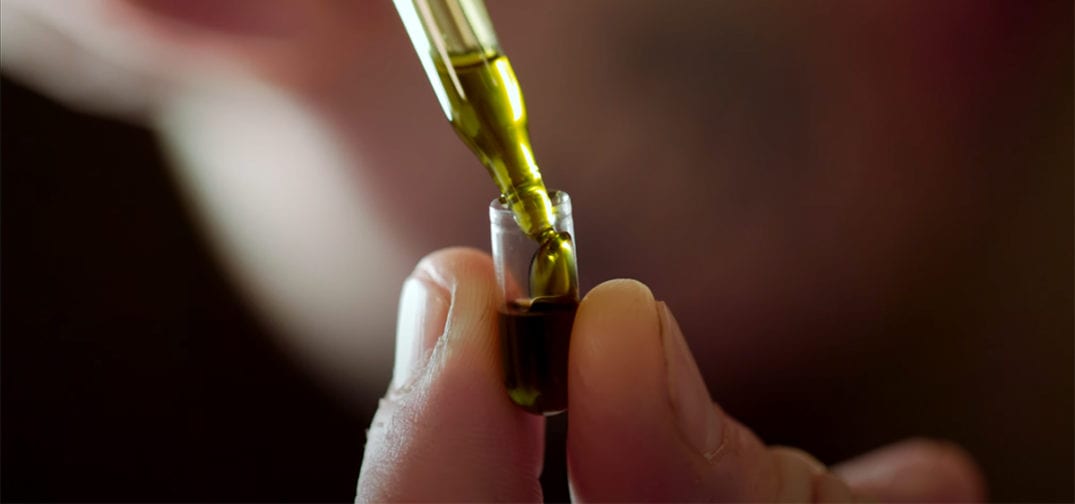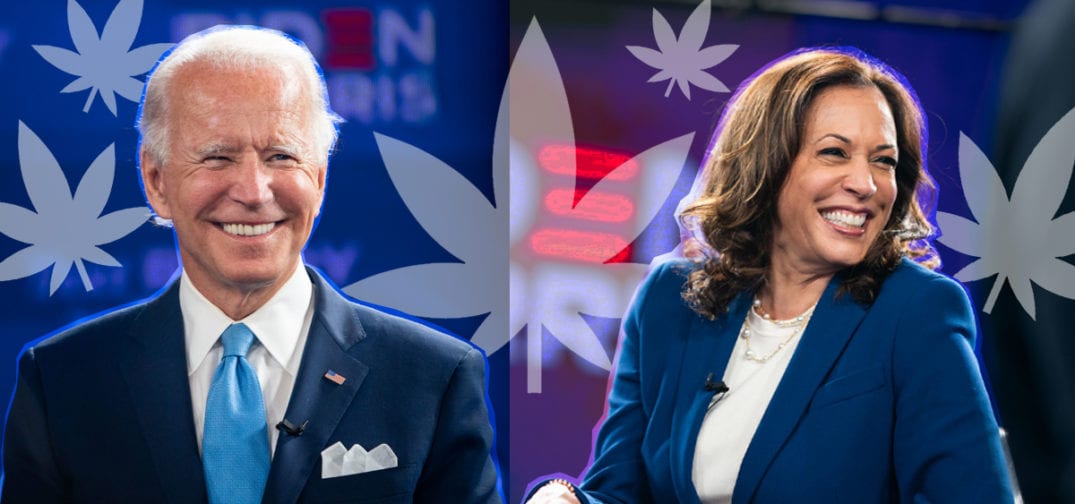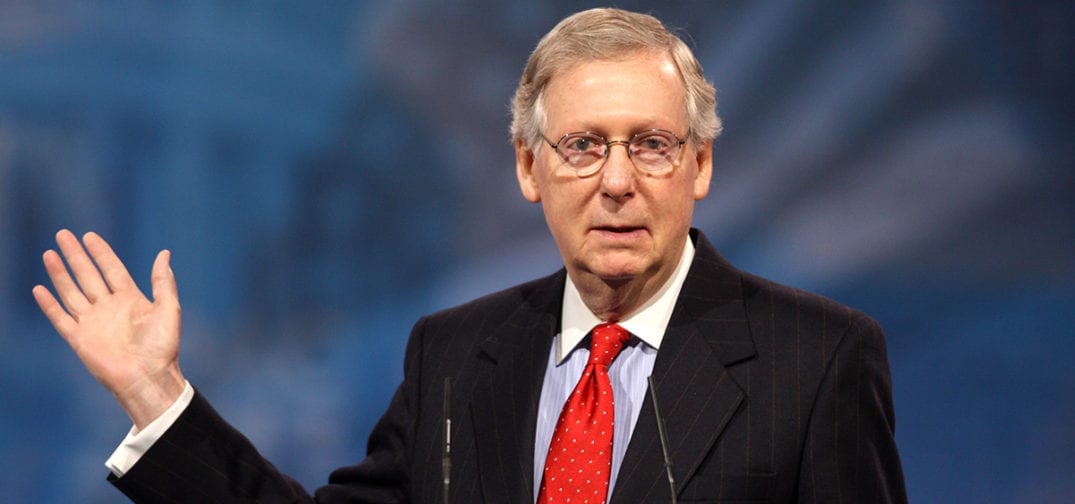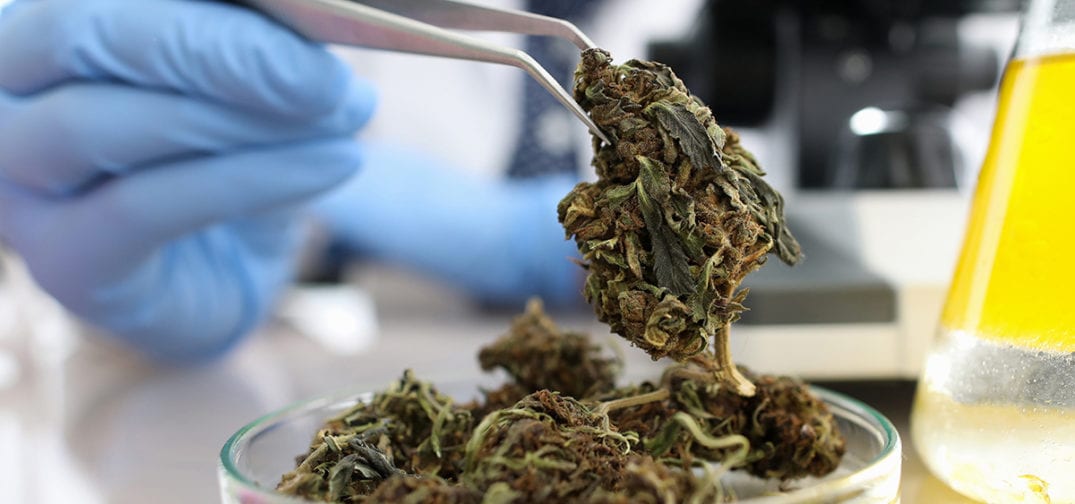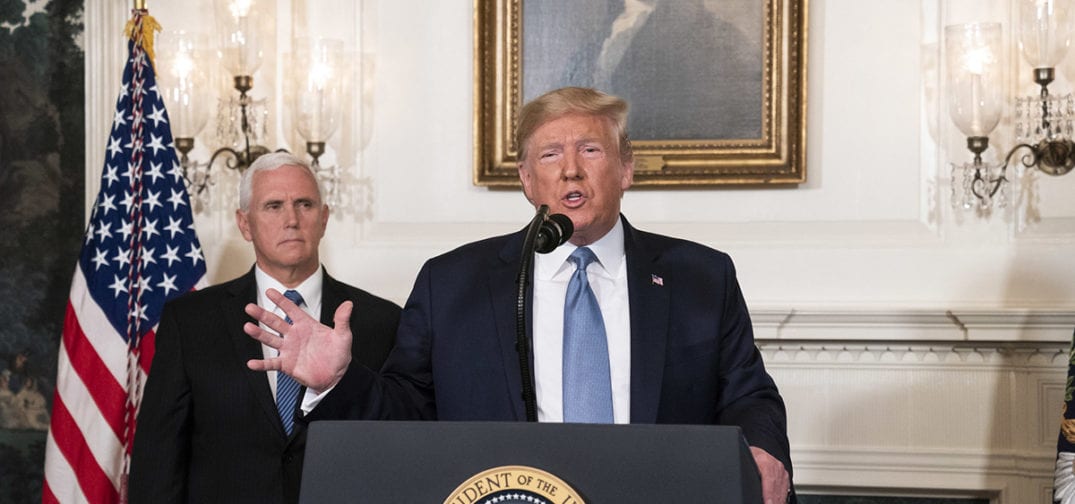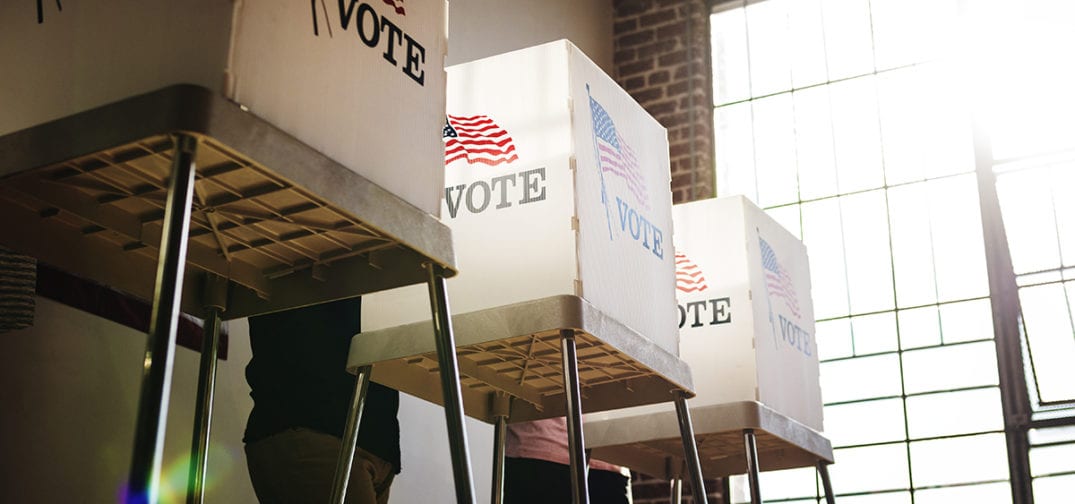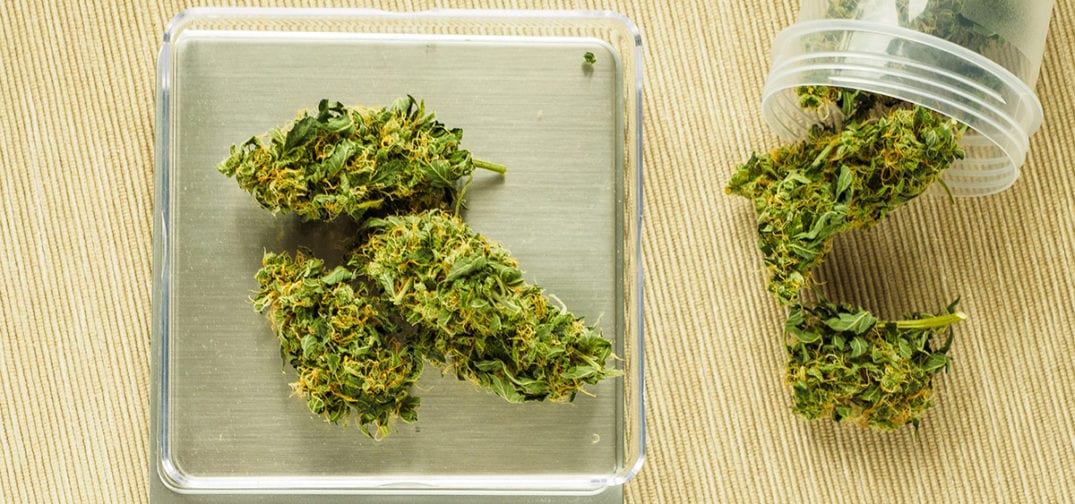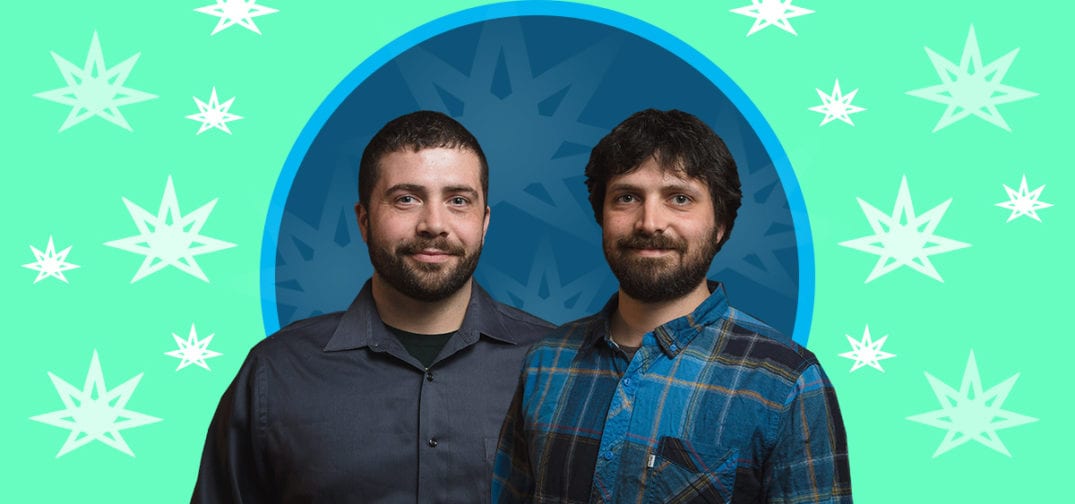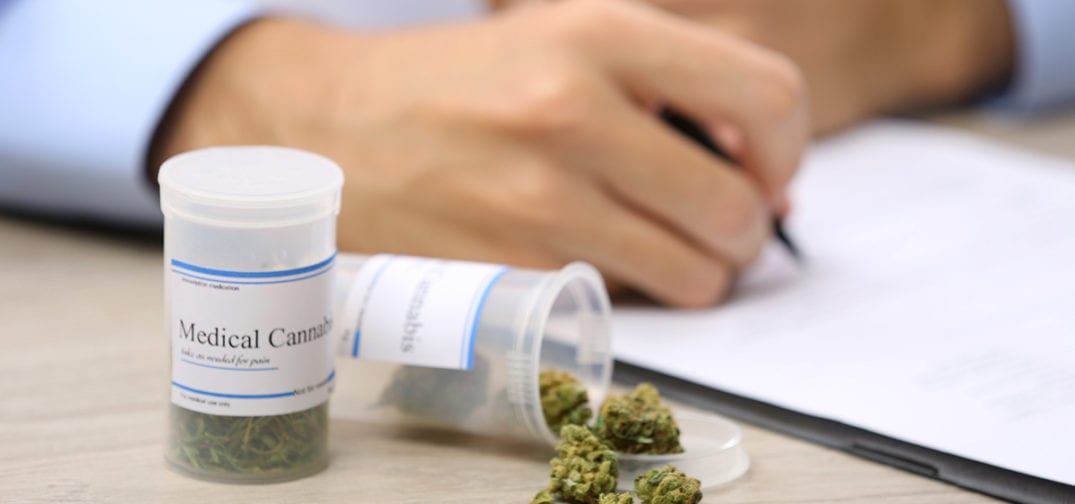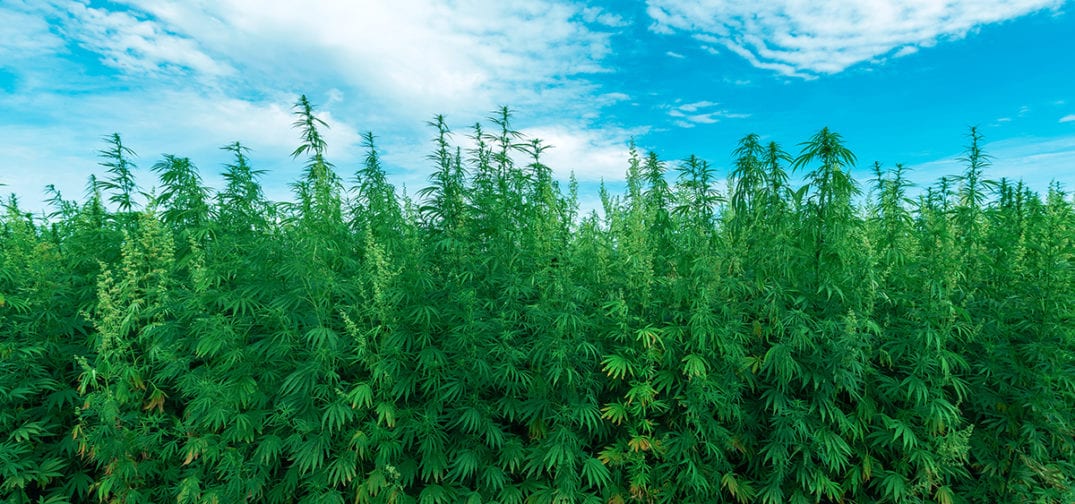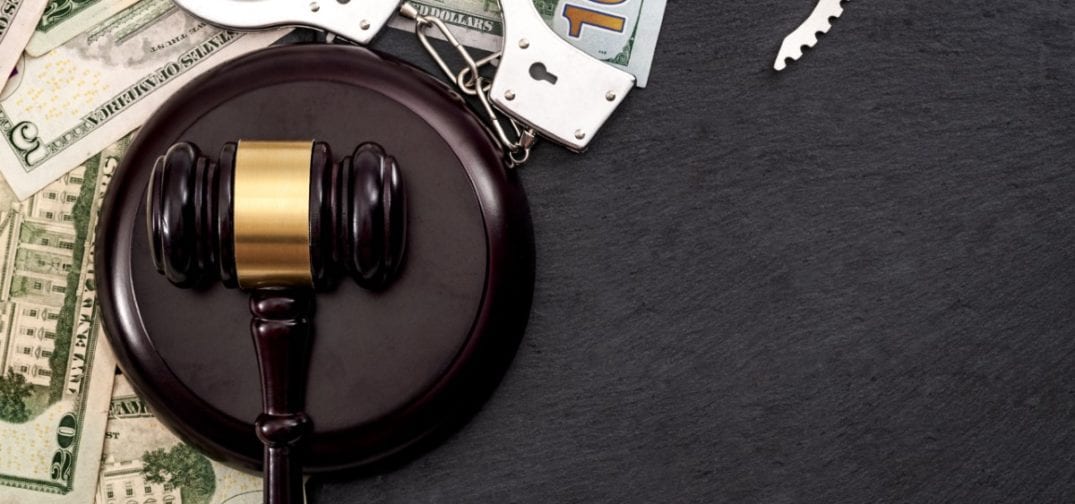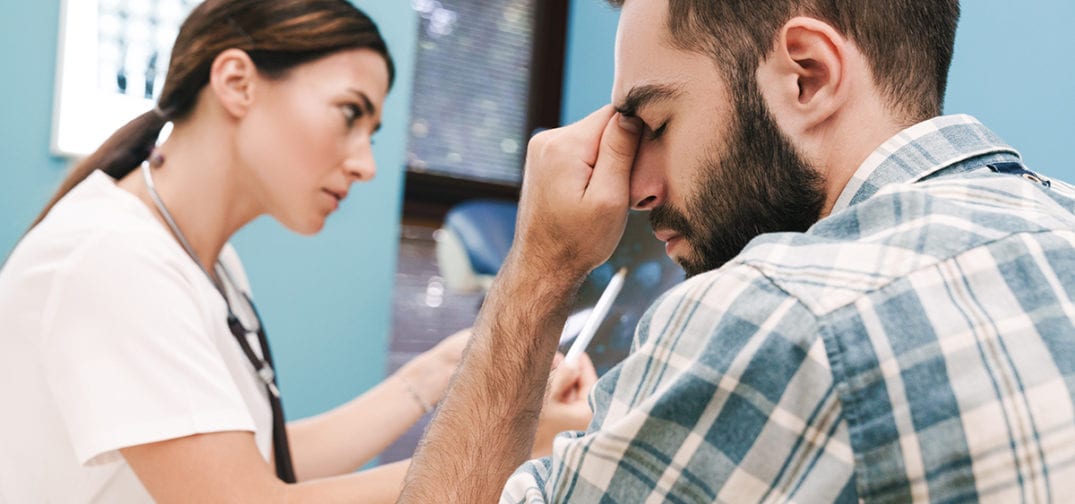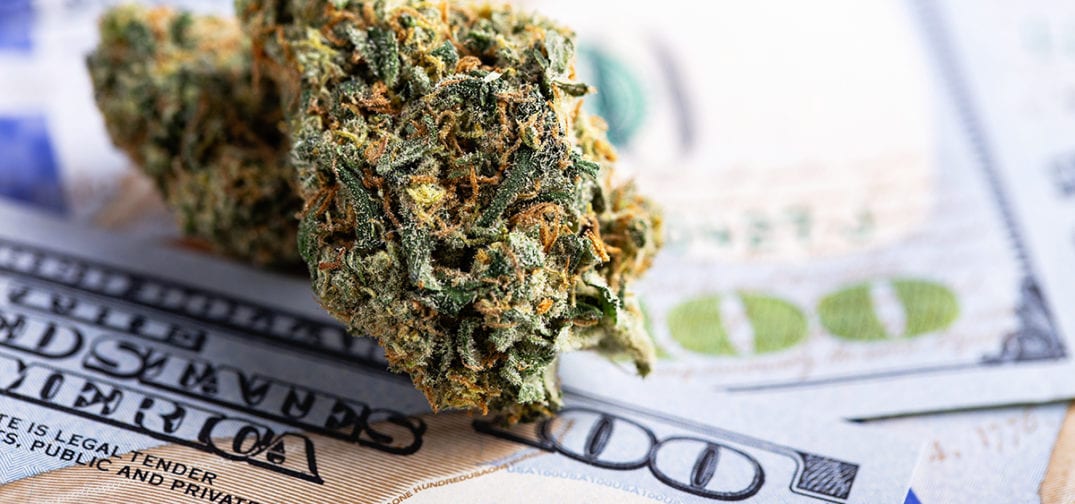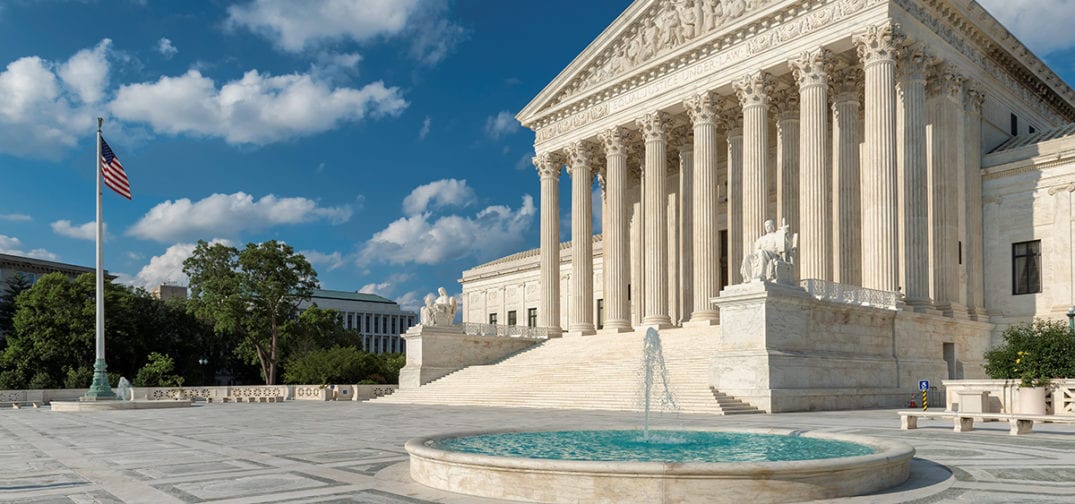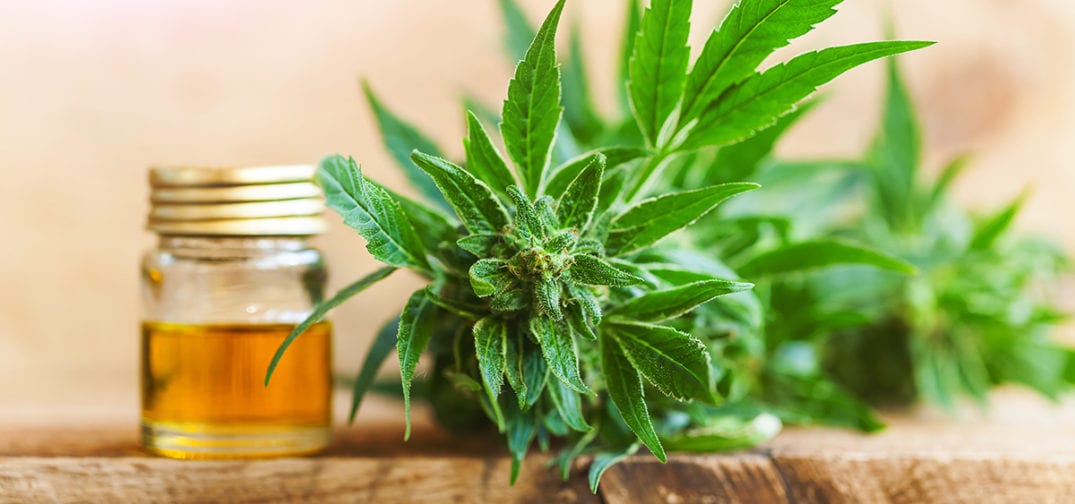Noel Abbott, CEO of Ganjapreneur, and Graham Abbott, our Chief Editor, are brothers native to the northwestern corner of Washington state who started blogging about cannabis in 2013. In 2014, they partnered with venture capitalist and digital-era entrepreneur Andrew Rosener to found Ganjapreneur.com, which has since grown into a multifaceted resource for cannabis professionals and is relied on for industry news by hundreds of thousands of people around the world.
Recently, Noel and Graham joined our podcast host TG Branfalt for a retrospective discussion about their backgrounds and Ganjapreneur’s origin story. This conversation reveals many behind-the-scenes details: from the website’s original conception after a long trek through Spain, to finding success as a fully-remote and digital-first publication, to why conducting business in the cannabis industry comes with a mandate of action against the many injustices of prohibition. They also talk about how witnessing repeated instances of “folly” in the industry led them to create Ganjapreneur’s latest project, Oregano.com, a cannabis satire outlet intended to raise funds and awareness for The Last Prisoner Project.
Listen to the interview below or via your favorite podcast app, or scroll down for the full transcript!
Listen to the podcast:
Read the transcript:
Commercial: This episode of the Ganjapreneur Podcast is brought to you by CannaPlanners. CannaPlanners is on a mission to normalize the emerging cannabis industry through beautiful design and professional web and marketing solutions. Whether you’re looking to create a new cannabis brand, improve your packaging design or get your company online. CannaPlanners has the perfect solution. Your website is the window into your cannabis company. Make sure that you look awesome, that your messaging is on point, and that traffic converts to customers through SEO. From CBD companies to dispensaries and everything in between, CannaPlanners has you covered. Visit them online today at CannaPlanners.com for a free web demo.
TG Branfalt: Hey there. I’m your host TG Branfalt. And thank you for listening to the ganjapreneur.com podcast where we try to bring you actionable information and normalize cannabis through the stories of ganjapreneurs, activists and industry stakeholders. Today’s kind of a special show, where I’m joined by the founders of Ganjapreneur, the Abbott brothers, Noel Abbott, who’s the CEO, and Graham Abbott, who’s the chief editor.
Before they introduce themselves and get in their background, I just want to tell a little story. I met these guys about six years ago, never actually met them in person, through a Craigslist ad. I had just covered the passage of medical cannabis in New York for Reuters. Was doing a lot of freelancing. And they were looking for a brief writer. And here we are six years later. We’ve never really discussed in public sort of our relationship and how Ganjapreneur works. So, Noel, Graham, how are you guys doing?
Graham Abbott: Doing great. This is Graham here.
Noel Abbott: Yeah, Noel here. Great. Doing well. Thanks for having us, TG. It’s been a long time coming.
TG Branfalt: Why don’t you guys just sort of tell everyone the stuff that I know a lot of but don’t know everything about your background. How’d you guys end up in the cannabis space and what’s it like doing this as brothers?
Noel Abbott: Totally. Well I guess I’ll jump in first, this is Noel. I guess to provide background on how we wound up here specifically with Ganjapreneur and sticking with it for so long, it would make sense to start with when we first had the idea of starting a project together of any kind. It was about eight years ago I think when Graham and I were on the Camino de Santiago, which is a trek in Spain. And this was right after Graham had graduated from college. And Camino de Santiago is a pilgrimage. I think it’s got Catholic background, and it’s about 500 miles total from start to finish. Yeah, it was a lot of walking. I didn’t do the whole thing. I met up with Graham at about the halfway point I think. Graham had just graduated college and I was, I still had a full time job at the time working for a software company.
I remember when I met up with Graham and the group that he was with at the halfway point, I walked into the town and they were sitting at this table having lunch at a terrace restaurant. And there was this woman at the table who was a venture capitalist, an angel investor. And she had already been talking with Graham and his friend who was on the trek with him about the idea of pitching her a company during the course of that journey. And Graham, do you want to, I don’t really have the background of that.
Graham Abbott: Well, yeah. I think she was looking for youngsters to invest in and grow her fortune. And she was really pushing for us to come up with that next big idea that she could invest in. So yeah, we kind of tossed some things around. I believe you were the one who actually talked to her first about the cannabis industry, Noel.
Noel Abbott: Right. That was after the trek had completed. I think it was a couple months later. We had originally mentioned the idea, we didn’t really have a fleshed out proposal for her but we had mentioned the idea of some kind of an app that would connect community gardens and organic farms and locally produced food with people nearby. And she didn’t really see how that was going to be very profitable. So we kind of left it at that. It was sort of a dead chain of emails for a while.
Then when Washington and Colorado first had their votes to create the adult use industries, I reached back out to her with a proposal for some ideas for a cannabis focused media project. And she just flat out rejected me and was almost, in fact, offended, I would have thought of her for that. But that really was what got us thinking about just the possibility of creating a project that we could use to sustain ourselves and sort of determine our own career trajectories. So I’ll credit her with planting that seed in our brains because neither one of us really had thought about that as a potential direction for a project.
TG Branfalt: And what about you, Graham? Noel was doing software stuff. What were you doing prior to graduating college and shortly thereafter, it appears, starting Ganjapreneur.
Graham Abbott: In college, I studied communications. And then after graduating, I left and went on that trip. For me, it started as just that pilgrimage, just kind of an experience. And then I ended up staying in Europe. And then when my visas had run out there, we went over to Southeast Asia. I ended up on a long year tour around the world and then came back and was looking for something to do. That very first summer I came back, I was canvassing for a little bit, that kind of got me into the political sphere. But then I ended up, it was right when I had quit that job was when Noel started talking to me about the idea of writing on a semi-regular basis about this budding industry. We were certainly really excited about the industry, about legalization in general and we’ve been supporters of the movement since, I can’t speak for Noel, but for me, it was in college was where I came around to cannabis. In high school, I wasn’t a narc, but I was pure you can say.
TG Branfalt: Why the media space? You have this background in sort of software and communication. I obviously ended up in the cannabis media space, but didn’t found a media company. So first of all, why did you guys decide the news and then sort of media side of it? And then sort of describe going from this little blog to hiring writers and becoming sort of a mainstream source.
Noel Abbott: Totally. So, at the time that I had first reached out to Graham about starting a project, we had a few different ideas that we were throwing around. There was an idea to offer marketing services and web development services because that was really my career focus at the time to retailers and manufacturers as they started opening up. And we did pursue that a bit, and I still am a partner in a small creative agency that I started with some friends a few years prior to that that never really became our full-time focus. But it’s been something that has continued on.
And so, that was one angle. And the blog concept was really just to establish presence at the beginning, to have a place where we could publish things on a regular basis. It seemed obvious that people were going to be interested in keeping tabs on the industry as it developed. Granted there were already a lot of cannabis oriented publications out there, but not very many of them focused specifically on the business side of the industry or the b2b angle. And so, that was our focus from the beginning was to talk about the entrepreneurs and the businesses that were starting up.
And over time, I think that that became our main focus just because, cannabis is a very volatile industry. There’s stories all the time about companies that came at the industry with a bunch of money and then wound up not hitting their benchmarks that they expected to hit, and then winding up getting acquired or gutted in some fashion. And with a media company, the business model works as long as there’s an audience. So, the volatility in terms of the changing regulations and competition and all of that, it doesn’t really affect us in the same way that it affects operators who are touching the plant.
I knew for our sake, also, both of us had writing backgrounds from our education and just hobbies. I think that’s why it really became our main focus and that’s ultimately why it wound up becoming the more successful idea of the several that we had started out with. And then over time, we never really had any moment of exponential growth. It’s always just been steady, hard work. And luckily, we’ve had the opportunity to partner with really talented people and to get really competent individuals on our team. And I really credit that as the most contributive factor in where we’re at today.
TG Branfalt: And Graham, what was the learning curve like for you? You had gone through a communications program, but you said that you didn’t really get into cannabis until college. You ended up being the chief editor. When I started with you guys, it was on a much smaller scale than it’s become. You were my point person for a long time, and it never really seemed to me that you were that new to this. It’s almost a surprise to me that you got sort of acquainted with cannabis later than a lot of people who would sort of end up in your role. So what was the learning curve like for you?
Graham Abbott: Well, it was steep. Honestly, it was a lot of fun at first. I knew my weaknesses going into it and just kind of devoured the news cycle for, I mean, I don’t know, never really stopped. It’s true, I didn’t study journalism specifically in school, and so I kind of had to embed myself into there and really try and learn as much as I could while participating in the industry kind of. Since the launch, things have gone well, for the most part. There were some hiccups. I’m glad to hear that you were unaware of my relative rookieness from the beginning.
TG Branfalt: Both of you guys, as leaders of this organization, neither of you have ever sort of, there’s never been this sort of thirst for power or sort of arrogance that comes with the role. Noel, when I started, I think you were technically the CFO.
Noel Abbott: I think I was the CTO.
TG Branfalt: CTO. That’s exactly what it was way back then. So tell me guys about sort of the experience building a brand from scratch, which you both sort of have that background in. And then tell me about doing it again with Oregano and the sort of endgame with Oregano. Talk about that a little bit too.
Noel Abbott: Sure. Before we get to Oregano, I’ll answer the question about how did we ultimately get to where we are in terms of going from the relative obscurity to being more of a brand and an established organization. I think that that really, that transition started when we first got connected with Andrew Rosener, who is the other official co-founder and the primary investor behind Ganjapreneur. At the beginning you said you found us through a Craigslist ad. Andrew also found us through the internet. And I had never met him when we first spoke. And we didn’t actually meet in person until well after we had been partnered with him on Ganjapreneur. I think it was like over a year later.
Graham Abbott: Cannabis Cup.
Noel Abbott: That’s right. At the High Times Cannabis Cup on April 20th.
TG Branfalt: Sorry to interrupt, but that’s still the craziest thing I’ve ever done that this job has afforded me was the Michigan Cannabis Cup. It’s a dream come true.
Graham Abbott: They’re wild places.
Noel Abbott: I haven’t been recently, but the one that we attended was definitely, that was the first time I’d ever been to any cannabis event and it was also the very first after the opening of the adult use markets in Colorado. And I was still full time employed as the marketing director for a software company at the time. So I had to tell them a lie and say that I was going camping for the weekend with my brother, but really we were going to meet the investor behind our cannabis industry startup that ultimately I wound up leaving them for. It was definitely an eye-opening experience. And when we did meet Andrew, it was awesome, we actually didn’t get to hang out with him for very long because he wound up babysitting the cast of Super Troopers who got too high on dabs at the event.
So we only got to hang out with Andrew for like an hour, but I could just tell that he was as excited about the project as we were. It seemed like the focus was just on the incredible opportunity of being a part of history and being a part of this massive change in society that was going to be slow, but is hopefully a sign that there’s going to eventually be a world where cannabis is not demonized and criminalized and people don’t have to be locked up in prison for doing something that doesn’t harm anybody. Now there’s still people locked up in prison for nonviolent cannabis offenses. And that kind of brings us to the project Oregano.com which we had started planning last year.
And to get into that, basically, the context, I guess I didn’t fully explain Andrew and his role. When we first partnered with Andrew, the deal was he owned Ganjapreneur.com and we were currently operating on a different domain name. It was something like theganjapreneur.us. And he had the same idea for a brand and had reserved this domain much earlier. He reached out to us and he liked what we were doing and wanted to partner with us and have us use his domain. He would fund the company and we would all be partners.
So, fast forward five years, five and a half years to 2019 when we’re pretty well established, Graham and I had talked about the idea of doing cannabis industry satire.
Graham Abbott: We tried a few times too.
Noel Abbott: Yeah, we tried through Ganjapreneur on April Fool’s Day and things like that.
TG Branfalt: People get really upset.
Noel Abbott: Yeah. It’s the whole fake news thing, because people don’t read disclaimers or take away the obvious conclusions from a headline that’s clearly false. If they don’t get that right away, then they’re very upset. So, it makes sense to separate satirical content from editorial content. I agree with that 100%.
So, Oregano was an idea that we had. I realized that Andrew also owned oregano.com, the domain name. He is in fact, one of the most prolific domain name brokers and investors worldwide. And there’s this whole industry of aftermarket domain names that Andrew is repeatedly and continuously awarded as one of the top people in that industry. And he’s been around for a long time so he’s been acquiring really valuable domain names for a long time. And I pitched the idea of using Oregano as a satirical outlet for the cannabis industry. He was on board with it immediately.
And the reason why I think we felt the need for satire in the cannabis industry was specifically because after being around for so long, we had witnessed so much of what I guess I would only describe as folly. Just people with a lot of money coming to the industry assuming that everything’s going to work out fine, assuming that they know the audience that they’re trying to reach and just falling flat. And it happened over and over and over over the course of the past five or six years.
So, we definitely had, I would say some apprehension or annoyance about certain things in the industry and we wanted an outlet for that, so that we could hopefully produce something that’s going to entertain the people in the industry who have been around for a long time who’ve seen all the struggles of the industry. We wanted it to be something that wasn’t just going to be purely for entertainment’s sake because you can’t really separate cannabis from its history and the context of prohibition and the massive amount of injustice.
So, we decided to partner with an organization called The Last Prisoner Project. And their mission is to bring restorative justice to people who have been affected by the drug war, specifically people who are in prison for drug related offenses. So the idea was we would launch this satirical outlet, and at the end of every article it would have a disclaimer along the lines of, this article is a joke, but you know what’s not a joke is that there’s still 40,000 people behind bars for non-violent cannabis infractions.
TG Branfalt: So since the death of George Floyd, that that was about a month ago now, 50 something days ago, I think it is, 56, maybe 57 from the time that we’re recording this, we as an organization, it’s sort of the direction of you guys, have sort of brightened the spotlight on social justice aspects of prohibition. We’ve always covered the social equity stuff because we’ve always had sort of a very heavy business focus. There’s an obvious answer to this question, but why have you guys decided to put a bunch more emphasis on this issue collectively? You guys steer the ship. Let’s just be honest. If you read the comments, we post some of the social justice stuff, and we get laugh reacts for it. Seriously. I just want to point that out to listeners.
Noel Abbott: To fully answer that question, the timeline with Oregano was we had planned to launch it on April 1st because of April Fool’s Day and satire. And it was in March that the coronavirus pandemic started to really take off. And the Last Prisoner Project who we were working with reached out to us and said, “Hey, we’re afraid that if we don’t act soon that the people that we’re trying to save and to grant clemency for are going to be trapped in prison as this virus makes its way through the prisons.” And so, they wanted to get the word out as soon as possible because it was also an opportunity to put pressure on the government to actually get something done.
So we launched Oregano early. It wasn’t quite finished but we had launched the platform. And then over the next month or two, the pandemic continued to spread. Some jurisdictions have granted clemency to prisoners but it’s really nowhere near the amount that we would need to actually achieve some semblance of restorative justice. But then after the death of George Floyd, I just sort of had realized that over the past several years while we have focused on social equity in the states that have opened up adult use markets, I’ve always said that we want to reflect diversity in the people who we profile, we really weren’t putting very much of a conscious effort into accurately communicating the true depth of how just absurd the injustice is surrounding cannabis prohibition and how cannabis prohibition and the enforcement of it has tied into institutional racism and has really just decimated communities that are over-policed.
It also wasn’t just up to me and Graham. I would credit a lot of that shift in direction of our reporting to the women that we have hired. Ellie, who we hired just over a year ago, year and a half ago, when she came on to help us with social media, she told me that she wanted to focus on social justice with the accounts that she was choosing to highlight and to repost from. She pointed out that we weren’t doing very much with that. And I said, you know what, you’re right, let’s do it. And then after the death of George Floyd and all of the protests all over the country, I think a lot of, I mean, I hope, and I’ve witnessed it, so, I wouldn’t just say hope, but I hope that all white people are thinking about this at least. But as you mentioned, yeah, there are definitely people who think that it’s all part of some media manipulated narrative, and that it’s all a conspiracy.
TG Branfalt: So let me play devil’s advocate for a second. Graham, do you think that, we call ourselves, we are a b2b publication, do you think that it runs against the mission of being a business-focused publication to put more emphasis on the social justice aspects of prohibition?
Graham Abbott: No. Short answer, no. I’m not a cannabis business operator myself, obviously, but I do owe my livelihood to the industry. And the bottom line is that any person or any entity that’s benefiting from the cannabis space is implicitly benefiting from the painful history that cannabis has undergone, because the only reason why there’s this new exciting industry right now it’s because it’s been tamped down for so long. And so many people have been oppressed in the name of making this glorious new industry. It’s not enough for current business owners to just be sad for the people who have been locked up for decades. You can’t just say like, yeah, that sucked, but things are better now and we’re taking our own opportunities. Everything is tied back to that painful history. And there needs to be action from members of the industry, and to not act is … it’s morally unacceptable.
Noel Abbott: There’s an interesting parallel there with the existence of institutional racism as a whole. It’s like a conveyor belt that moves in one direction. And if you’re not doing anything, then you’re still moving with the conveyor belt. You actually have to make an effort to work against the current in order to have any effect. And there’s no such thing as neutrality, you can’t just remain apathetic to it. By doing so, you’re implicitly choosing the side of the status quo.
TG Branfalt: We’re talking about sort of the changes of the social order in some ways and how it relates to sort of what we do. So, I just want to ask sort of briefly the future of sort of cannabis industry publishing, especially in the era of COVID. I mean, we have worked remotely from the jump. I’ve worked in three or four different states while working for you guys. I think Graham’s done some publishing from Paris, France, or at least somewhere.
Graham Abbott: Yeah. Southern France. Was there for a summer.
TG Branfalt: So in the era of COVID, what do you guys see sort of as the future of the cannabis industry publishing and just sort of briefly talk about High Times and how their IPO has, what that sort of means it because it’s stalled and it hasn’t done the numbers that they thought it would. In the meantime, they’re buying a bunch of brands and touching the plant. Talk to me about sort of what you guys see the future of industry publishing at large, especially again, seeing what’s happened with High Times.
Noel Abbott: So I think the current state of cannabis media is in a kind of a precarious position because so many media companies, especially in the cannabis industry, have focused on the combination of print and events. And both of those are more difficult, events much more so, in the world of the coronavirus. I think High Times, whether or not they were going to have to close down publications just due to the need for revenue prior to the spread of the pandemic, is its own question. But obviously, with the coronavirus, the business model of hosting big events on a regular basis just becomes really, really difficult. There’s no clear end in sight at this point.
So, the companies that have relied on that, I think they’re having a hard time. I think that print specific publications are probably overall going to be fine. Even though we have seen numerous cannabis publications get closed down, there are also people who are doing really awesome things and who are setting a great example for the industry as a whole. Some companies that I would name in that regard are the Northwest Leaf. They have been expanding and they actually hired a bunch of the High Times writers who got laid off for their newest expansion in the north east. There’s a magazine called Broccoli Magazine, which is entirely women led and created. And that’s a really awesome artistic focused cannabis magazine, and I really love what they’re doing. There’s other industry publications like Marijuana Venture. I have a sense that all of these companies are going to be fine just because their audience still wants them around.
For us, I think that the coronavirus, because we’re a digital-first company, we’ve always been a remote company, we’ve only ever created digital offerings, we don’t host events, we don’t print magazines. For us, the impact of the coronavirus has really been pretty minimal. I think for niche publications in other industries, that might not be the same. But in the cannabis industry, we’ve seen cannabis be deemed essential in pretty much all of the states where it’s been legalized. And there’s clearly a high demand for cannabis during this time where people are stuck at home and they’re stressed out. It’s just natural that people are going to spend some of that time consuming cannabis. I think it’s healthier than if they were drinking.
So, in the long run, after, where we’re at, four months, four months later from when we kind of went into lockdown, it doesn’t really seem like the effect on the economy is really having the same effect on us. I think that hopefully cannabis media will be able to sustain, and all of these companies that are producing great content and employing people will be able to tough it out and make a resurgence after there’s some return to normalcy.
TG Branfalt: What’s your take on that, Graham?
Graham Abbott: I feel like that sums things up pretty nicely.
TG Branfalt: When the virus hit, for example, as sort of the chief editor, do you think that overall, the industry did well sort of with how it covered the coronavirus, because at the onset, I’m sure you were too, we were getting bombarded with sort of, what do I want to call them, snake oil salesmen, saying that, “oh, my cannabis product is going to save you from the coronavirus.” Do you think that the publishing side of the industry did well in not sort of biting on those duplicitous claims of fly by night companies?
Graham Abbott: I’d say for the most part, yes. I think publishers have been fairly responsible in that. I know there have been, so, obviously there are so called snake oil pushers who are, this was the case before COVID-19 with certain “bad players.” The CBD industry specifically.
Noel Abbott: We had a whole section planned on Oregano that was just about CBD infused products, like CBD infused shoelaces, CBD infused washing machines. There’s been a lot of those.
Graham Abbott: We’re guilty ourselves, we’ll talk about the latest, I think we ran an article about CBD infused sportswear at one point. And certain things are just so eye-catching. It deserves some mention just for how out-there it can be.
TG Branfalt: Well, I think it depends on how you cover it.
Graham Abbott: Exactly.
TG Branfalt: I think that’s been one of the sort of, the good things about having sort of you both at the helm in that you’re steady. It’s not like we cover it and make a big deal about it. We just want people to know like, hey, here’s the information, but we’ve never editorialized too much.
Graham Abbott: Yeah. On occasion.
TG Branfalt: When I go Gonzo and do too many dabs in Michigan.
Graham Abbott: There have also been these stories popping up about unverified studies investigating cannabinoids and terpenes and their potential effectiveness against certain symptoms of COVID-19. And those, we always have to preface that with this is a non peer reviewed, this is a pre-published article. Because the situation is evolving so rapidly, I think it’s still an important conversation or an important topic of conversation.
Noel Abbott: And it’s clear. I mean, it has been clear for a long time that cannabidiol is a very efficient effective reducer of inflammation. Just from anecdotal evidence, everybody that I talk to who use it says that. My personal experience of that. And there’s medical research that shows that. So I don’t think it’s completely outside the realm of possibility that it’s a viable treatment for alleviating symptoms. If that’s possible and it’s being held up by the current state of regulations, I think that it deserves more attention.
TG Branfalt: And I’m actually sitting here with the half injured shoulder, we’ll call it, and it’s covered in CBD and I feel great. The last couple of minutes here guys, give me some advice. What would you tell an entrepreneur about building a brand, because I think that that’s something that you guys have collectively done really, really successfully. Just from the imagery to sort of the, the colors and the attitude of the brand. So what advice would you have for entrepreneurs specifically when it comes to brand building?
Noel Abbott: Sure.
Graham Abbott: I’ll go first real quick and just say I think consistency and don’t be in a race to do everything and all of it all at once. I think focusing and fine tuning and just staying consistent to your original idea and add some elbow grease and good direction and that’s probably a better recipe than most.
TG Branfalt: And maybe walk 500 miles on a pilgrimage before you launch a company.
Graham Abbott: I don’t know — if that’s something you’re into, I can highly recommend it.
Noel Abbott: I would definitely credit, I think that the success of our brand in a marketing context, I credit a lot of that to my business partner in the creative agency that I had co-founded before Ganjapreneur, Casey Burton, who now is our creative director at Ganjapreneur. And he really conceived of and designed the entire visual identity of Ganjapreneur as it currently exists. Prior to that, it was kind of a, we didn’t look bad, I would say, but we definitely looked a little DIY. It was just stuff that I had put together.
I think that if you have people with different perspectives talking about how things look and how they are experienced by a user, if it’s a website or whether that’s packaging, as long as you have people who have knowledge about design and branding weighing in on that conversation, then you’re headed in the right direction.
I think a lot of startup entrepreneurs wind up thinking of their visual representation and their branding as kind of an afterthought to their idea. And it’s something that they want to save money on. And so, you can go to Fiverr or you can go to like a logo competition website and just pay $100 and get 10 different “logos.” But the visual identity of your organization goes so much further than just the logo. It really all has to tie into one singular philosophy or ideology that carries through everything. And so, your color scheme, your typography, everything that exists in the real world like print and packaging along with everything on the internet, should all be consistent. And that doesn’t just mean putting the same logo on everything.
So having someone, whether that’s an internal employee, who you trust, or an agency that you work with separately to help you with that when you’re at the point where you can afford to do something like that, I would say is very important.
TG Branfalt: Before we go, I just want to sort of thank you guys for the last six years. It was funny the other day, I was going through my Facebook memories and I actually had mentioned, it was February 25th, 2014, was the first time that I ever wrote anything for you guys, which is bizarre to see that, like ahead of this. You guys have given me a lot of flexibility as a professional. You’ve always worked with me as I transitioned to teaching and sort of some of the other, some of the other things that I’ve gone through in the last six years professionally.
I really appreciate what you guys have done in terms of offering a really sort of, it’s a special sort of website I think and product that you offer people. And it’s definitely a representation of what you guys had in mind, at least for my estimation, six years ago when I met you. And one day, we’ll meet in person. A lot of people probably don’t know, we’ve actually never met in person. I’ve always stayed on the east coast and then the Midwest briefly. Maybe one day you guys can come kick into the mountains because I’m not getting on a plane anytime soon.
Graham Abbott: Road trip.
Noel Abbott: That sounds great.
TG Branfalt: So again, thanks for being on the show. That was the founders of Ganjapreneur, Noel Abbott, he is the CEO, and Graham Abbott, the chief editor. Thank you guys again so much.
Graham Abbott: Thanks, Tim.
Noel Abbott: Thanks for having us, TG. We appreciate you, man.
Graham Abbott: And real quick, just also a quick thank you to our audience. We never really get the chance to address them directly but it means a lot that people tune in and keep tuning in. And we’ll keep it up.
TG Branfalt: You can find more episodes of the ganjapreneur.com podcast in the podcast section of ganjapreneur.com, Spotify, and in the Apple iTunes Store. On the ganjapreneur.com website, you’ll find the latest cannabis news and cannabis jobs updated daily along with transcripts of this podcast. You can also download the ganjapreneur.com app in iTunes and Google Play. This episode was engineered by Trim Media House I’ve been your host, TG Branfalt.
